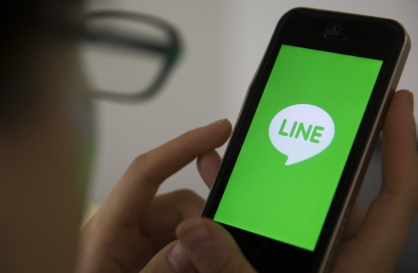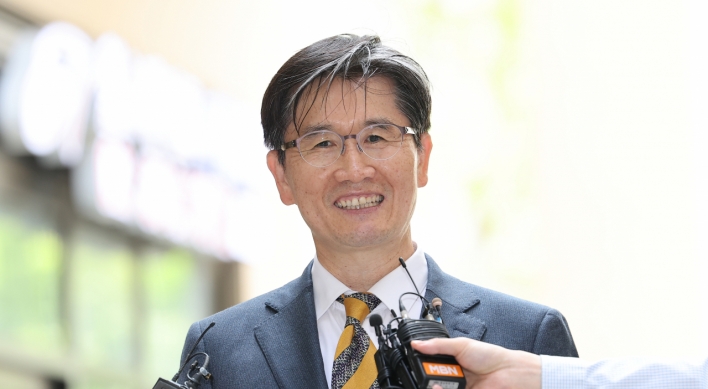China may not defend N. Korea if nuke tensions spin out of control: experts
By KH디지털2Published : April 17, 2016 - 16:08
China is unlikely to protect its only treaty ally, North Korea, if tensions over the North's nuclear weapons program spin out of control, Chinese experts told a Hong Kong newspaper Sunday.
North Korea was slapped with tougher international sanctions early last month over its fourth nuclear test in January and long-range rocket launch about a month later.
While chiding North Korea over its nuclear program, China's ruling Communist Party has been trying to preserve its traditional friendship with the isolated ally, which is viewed by Beijing as a strategic buffer against American influence.
North Korea and China, which fought against South Korea, the United States and 20 other allied countries during the 1950-53 Korean War, signed the treaty in 1961.
Professor Pang Zhongying, an international relations expert at Beijing-based Renmin University, told the South China Morning Post that North Korea's defiant pursuit of nuclear weapons has damaged relations between Pyongyang and Beijing, and rendered the treaty effectively null and void.
"The treaty is China's only legally binding bilateral security pact remaining in force. But it exists only in the legal sense, and it is highly unlikely that China will provide military aid in the event of a conflict or war," the newspaper quoted Pang as saying.
Shen Jiru, a professor at the Chinese Academy of Social Sciences, told the newspaper that China must not be bound by the treaty if North Korea continues to develop its nuclear weapons.
"The treaty was a relic of the Cold War, which made no mention of specific circumstances under which China would provide military aid," Shen said.
China backed new U.N. sanctions against North Korea last month, but many analysts believe that Beijing is unlikely to put crippling sanctions on Pyongyang because a sudden collapse of the regime could spark a refugee crisis at its border and lead to a pro-U.S. and democratic Korea on its doorstep. (Yonhap)
North Korea was slapped with tougher international sanctions early last month over its fourth nuclear test in January and long-range rocket launch about a month later.
While chiding North Korea over its nuclear program, China's ruling Communist Party has been trying to preserve its traditional friendship with the isolated ally, which is viewed by Beijing as a strategic buffer against American influence.
North Korea and China, which fought against South Korea, the United States and 20 other allied countries during the 1950-53 Korean War, signed the treaty in 1961.
Professor Pang Zhongying, an international relations expert at Beijing-based Renmin University, told the South China Morning Post that North Korea's defiant pursuit of nuclear weapons has damaged relations between Pyongyang and Beijing, and rendered the treaty effectively null and void.
"The treaty is China's only legally binding bilateral security pact remaining in force. But it exists only in the legal sense, and it is highly unlikely that China will provide military aid in the event of a conflict or war," the newspaper quoted Pang as saying.
Shen Jiru, a professor at the Chinese Academy of Social Sciences, told the newspaper that China must not be bound by the treaty if North Korea continues to develop its nuclear weapons.
"The treaty was a relic of the Cold War, which made no mention of specific circumstances under which China would provide military aid," Shen said.
China backed new U.N. sanctions against North Korea last month, but many analysts believe that Beijing is unlikely to put crippling sanctions on Pyongyang because a sudden collapse of the regime could spark a refugee crisis at its border and lead to a pro-U.S. and democratic Korea on its doorstep. (Yonhap)










![[Weekender] How DDP emerged as an icon of Seoul](http://res.heraldm.com/phpwas/restmb_idxmake.php?idx=644&simg=/content/image/2024/04/25/20240425050915_0.jpg&u=)

![[Today’s K-pop] NewJeans' single teasers release amid intrigue](http://res.heraldm.com/phpwas/restmb_idxmake.php?idx=644&simg=/content/image/2024/04/26/20240426050575_0.jpg&u=)





![[Herald Interview] Mistakes turn into blessings in street performance, director says](http://res.heraldm.com/phpwas/restmb_idxmake.php?idx=652&simg=/content/image/2024/04/28/20240428050150_0.jpg&u=)
